Maersk's toxic trade: the North Sea Producer case
In August 2016 the FPSO NORTH SEA PRODUCER was beached in Chittagong, Bangladesh. The ship was allowed to leave the UK based on false claims that it would be further operationally used in the Tin Can port in Nigeria. In both the UK and Bangladesh, the Platform is fronting the battle to hold the owners, and cash buyer GMS, accountable for the illegal export of the FPSO.
The North Sea Producer (ex Dagmar Maersk) was deployed in the McCulloch field in the North Sea, transporting and extracting oil from the UK continental shelf for 17 years. It was owned by the North Sea Production Company, a single-ship joint venture between Danish A.P. Moeller Maersk and Brazilian Odebrecht. Once the field closed, the NORTH SEA PRODUCER was laid up in Teesport, UK, for a year while the owners were looking for buyers. For scrapping purposes the ship was only allowed to be sold to a facility within the OECD as any export of hazardous waste outside the OECD is in breach of EU law.
Maersk and Odebrecht chose to sell the ship to the largest vessels’ scrap dealer, cash buyer GMS, through a St. Kitts and Nevis post box company called Conquistador Shipping Corporation. They then provided the UK authorities with a false contract stating that the NORTH SEA PRODUCER had found a new owner who would operate the ship in Nigeria.
Despite the vessel being under the radar of local communities in Teesside and was well-known in the shipping industry for needing to be scrapped, the UK authorities relied on the false contract to allow the FPSO to leave on tug. But the NORTH SEA PRODUCER never ended up in Nigeria. Instead it was towed directly all the way from the UK, around the African continent, to Bangladesh. The Platform was quick to alert both the UK and Bangladesh governments of the illegal export. It was only once the FPSO had left the UK – and after the case was strongly criticised in Danish and international press – that Maersk was “very, very sorry” that Conquistador Shipping Corporation had beached the NORTH SEA PRODUCER in Chittagong. According to Maersk, the new owners took this decision independently – and Maersk had been tricked. In their Sustainability Report 2016, Maersk also stated that they had cut all commercial ties with the buyer of the NORTH SEA PRODUCER: an obviously meaningless statement if that implies cutting ties with Conquistador Shipping Corporation, a single-ship post box company. Only when caught red-handed did Maersk admit that they knew all along the buyers were GMS, the largest waste traffickers in end-of-life ships. Maersk and Odebrecht knew the vessel would be scrapped - they also knew GMS would bring it to South Asia for dirty and dangerous scrapping in breach of EU waste laws.
Once the ship arrived at the Janata Steel shipbreaking yard in Chittagong, and upon alerts issued by local NGOs, the Bangladesh Attorney General of the Department of Environment set up a special committee to determine the presence of contaminated residues and to investigate the ship’s illegal import due to the lack of necessary clearances and false claims that it was hazardous-free. Having operated in the North Sea, the vessel’s pipelines likely contain residues contaminated by radioactive materials and sulphur. Other toxics, such as asbestos and heavy metals, are contained within the structure and paints of the ship.
Upon a request from the Platform’s member organisation Bangladesh Environmental Lawyers’ Association (BELA), the report on the ship’s condition was released: it’s conclusion was that radioactive residues were found upon inspection and that further surveys needed to be carried out on the whole ship. BELA subsequently succeeded in getting an injunction on the breaking of the NORTH SEA PRODUCER. On 14 November the High Court Division of the Supreme Court of Bangladesh declared the import, beaching and breaking of the infamous FPSO North Sea Producer illegal.
The Court further noted with dismay the incessant violations of national and international laws by the shipbreaking industry, and passed several directions upon the government to regulate the sector in line with earlier rulings. The Court directed authorities to i) subject cash buyers and agents to stricter scrutiny, including a detailed recording of their particulars, and to hold them accountable to the strictest sanctions; ii) regulate the import of vessels registered under “last voyage” grey- or black-listed flags which are particularly popular with cash buyers, including Comoros, Palau and St. Kits and Nevis, and; iii) ensure that no vessel is imported without proper verifiable pre-cleaning certificates and declarations of in-built hazardous wastes, and/or by yards that do not fully comply with the requirements for obtaining an Environmental Clearance.
In the UK, the Platform demanded the Secretary of State for Environment to investigate the illegal export from Teesside. UK authorities have been looking into the case since then to establish the responsibility of all parties involved. Providing fraudulent documentation in order to circumvent existing waste export bans is a criminal offence, in Europe and internationally via the Basel Convention. In parallel Danish parliamentarians have requested that the Environment Minister to also take action to hold Maersk accountable.
Maersk and Odebrecht were well acquainted with the GMS’ notorious trafficking of waste ships. They were also well aware of the illegality of selling the vessel for scrapping in South Asia. This is not a case of poor human rights due diligence, but one where companies collude to earn big bucks on the back of people and the environment.
Related news
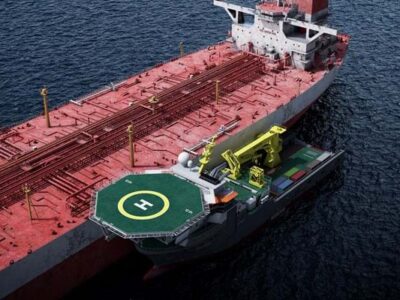
Press Release – NGOs call on the Netherlands to push for the safe and environmentally sound recycling of FSO Safer
The Dutch government is a pioneer in environmentally friendly technologies implementing sound life-cycle practices.
... Read More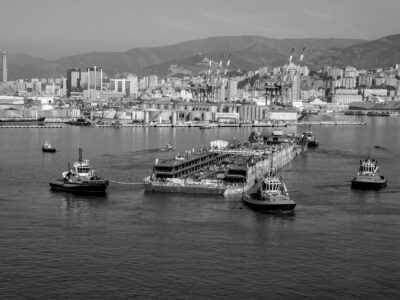
Platform News – REMINDER: Ship Recycling Lab on 20-21 September in Rotterdam
The NGO Shipbreaking Platform invites you to attend the conference Ship Recycling Lab on 20-21 September in Rotterdam (Netherlands).
... Read More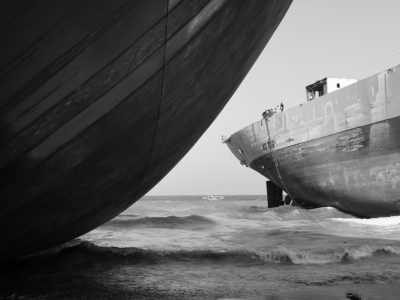
Press Release – Platform supports banks’ introduction of responsible ship recycling standards
Today, during the first day of NOR-Shipping in Oslo, Dutch banks ABN AMRO, ING Bank and NIBC, together with the Scandinavian DNB, announced that they are… Read More
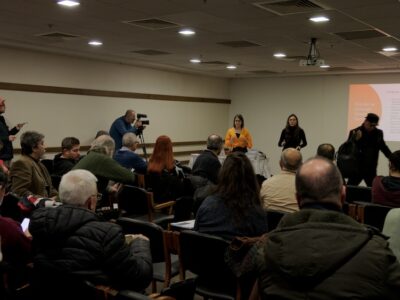
Platform News – Latest report on ship recycling in Turkey presented in Izmir
Attending the event, representatives from local NGOs, unions and concerned citizens engaged in a constructive dialogue.
... Read More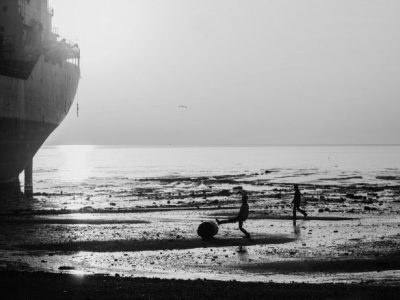
Press Release – Maersk end-of-life vessels to hit the beaches again. NGOs denounce container ship company’s step back to boost profits
The NGO Shipbreaking Platform and Transport and Environment (T&E) denounce Maersk Group’s decision to beach their end-of-life vessels in India [1]. The world’s leading container ship owner… Read More
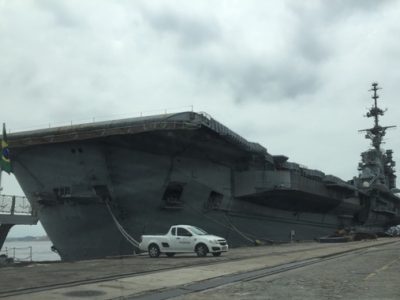
Press Release – Sale of asbestos-laden aircraft carrier São Paulo raises concerns
The NGO Shipbreaking Platform, Basel Action Network (BAN), BAN Asbestos France, International Ban Asbestos Secretariat (IBAS), İstanbul Isig Meclisi and Brazilian ABREA have alerted the Turkish Ministry… Read More
